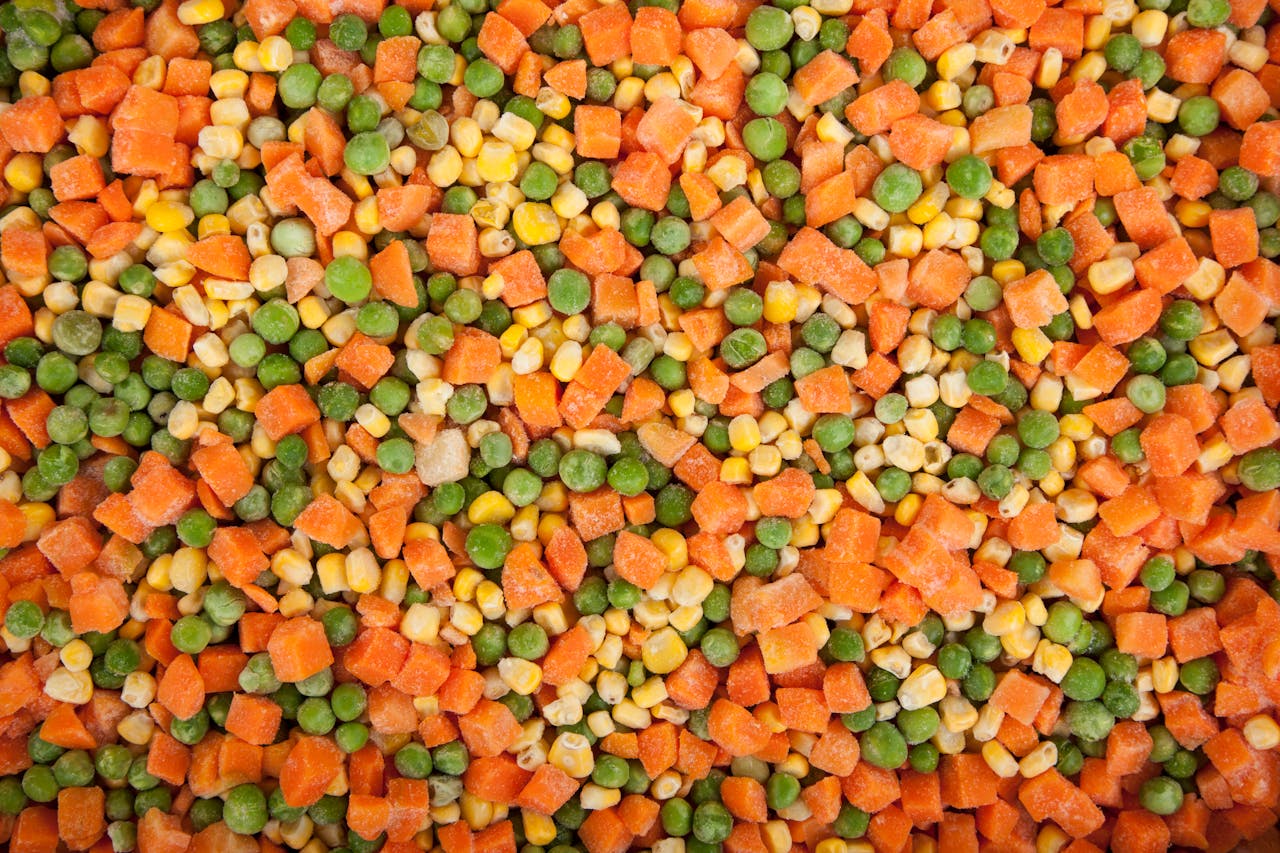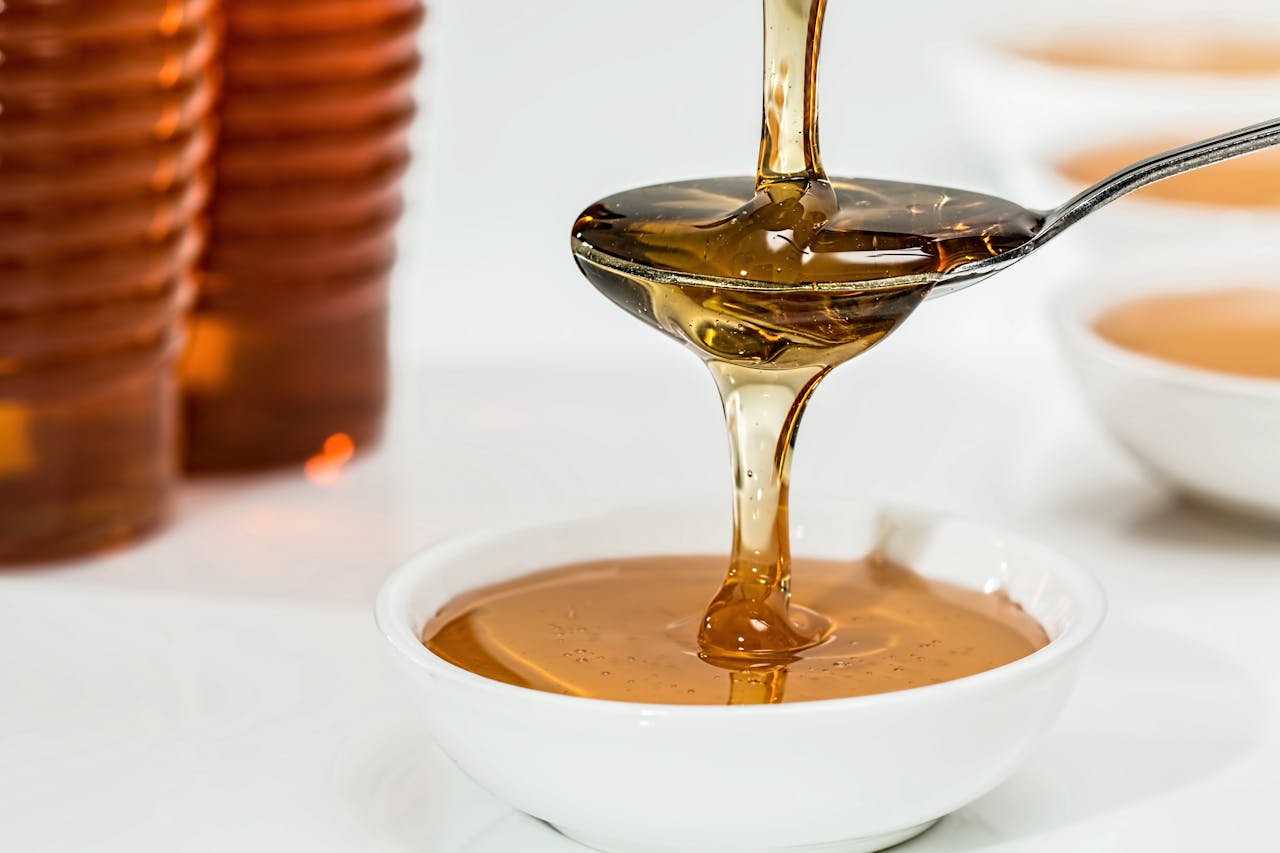Food myths can shape how we eat, shop, and even think about our health. Unfortunately, many of these misconceptions can do more harm than good. Some might prevent you from enjoying nutrient-rich foods, while others could lead you to make choices that negatively impact your health and wallet. It’s time to bust some of the most common food-related lies and help you make more informed decisions. Let’s dive into the top 10 myths and the truths behind them.
1. Eating Fat Will Make You Gain Weight
For years, fat has been blamed for weight gain, but this couldn’t be further from the truth. The stigma around fat originated from outdated research linking dietary fat to obesity. However, modern studies reveal that the type of fat you consume matters more than the amount. Healthy fats, such as those found in avocados, nuts, seeds, and olive oil, are essential for brain function, hormone production, and energy. The real culprits behind weight gain are excessive calorie intake and refined carbohydrates, often found in processed snacks and sugary beverages. Incorporating healthy fats into your diet in moderation can support satiety, help regulate blood sugar, and even aid in maintaining a healthy weight.
2. Microwaving Food Destroys Nutrients
Many people avoid microwaves, fearing they ruin the nutritional value of food. The truth is quite the opposite. Microwaving is one of the most efficient ways to cook food while preserving nutrients, especially water-soluble vitamins like vitamin C and B vitamins. This is because microwaves use short cooking times and require minimal water, unlike boiling or frying, which can leach nutrients into cooking water or oil. Whether you’re reheating leftovers or steaming vegetables, microwaving retains more nutrition than you might think. Rest assured, your microwave is not the nutrient thief it’s often made out to be.
3. Carbs Are the Enemy
Carbs have been demonized in popular diet trends, but not all carbohydrates are created equal. Refined carbs, such as white bread, pastries, and sugary snacks, are indeed problematic because they cause rapid spikes in blood sugar levels. However, complex carbs—like those found in whole grains, legumes, fruits, and vegetables—are essential for energy, digestion, and overall health. These carbs are rich in fiber, vitamins, and minerals that support your body’s functions and promote a feeling of fullness. Eliminating all carbs can lead to fatigue, nutrient deficiencies, and unsustainable eating habits. Embrace the good carbs and avoid falling into the low-carb diet trap.
4. Processed Foods Are Always Unhealthy
Processed foods often get a bad rap, but not all of them deserve it. The term “processed” refers to any food that has been altered from its original state, which includes simple processes like freezing, canning, or pasteurization. While ultra-processed foods like chips, candies, and sodas can be harmful due to added sugars, unhealthy fats, and artificial ingredients, minimally processed foods can be healthy and convenient. Think canned beans, frozen vegetables, and plain yogurt—these items are often packed with nutrients and can be a lifesaver for busy individuals. The key is to read ingredient labels and choose options with minimal additives and preservatives.
5. Brown Sugar Is Better Than White Sugar
Brown sugar often seems healthier than white sugar, but the differences between them are minimal. Brown sugar is essentially white sugar mixed with molasses, giving it a darker color and a slightly richer flavor. Both types of sugar have the same calorie content and similar effects on blood sugar levels. Switching from white to brown sugar won’t make your diet significantly healthier. The focus should be on reducing your overall sugar intake, whether it comes from white sugar, brown sugar, or other sweeteners, to maintain stable energy levels and prevent health issues like diabetes.
6. Fresh Produce Is Always Better Than Frozen
While fresh fruits and vegetables are fantastic, frozen produce is an equally nutritious alternative. In fact, frozen fruits and veggies are often picked at peak ripeness and flash-frozen to lock in nutrients, whereas fresh produce may lose nutrients during long transportation and storage times. Frozen options are also a budget-friendly and convenient choice, reducing food waste and ensuring you always have healthy ingredients on hand. Whether you’re blending a smoothie or steaming a side dish, frozen produce can be a smart and nutritious addition to your meals.
7. You Must Drink Eight Glasses of Water Every Day
The recommendation to drink eight glasses of water a day is more of a guideline than a strict rule. Your hydration needs depend on factors such as activity level, diet, and the climate you live in. Foods with high water content, such as cucumbers, oranges, and watermelons, contribute to your hydration and can help reduce the amount of liquid you need to drink. Additionally, beverages like herbal teas and milk count toward your daily fluid intake. Rather than fixating on a number, listen to your body and drink whenever you feel thirsty.
8. Natural Sweeteners Are Always Healthier Than Sugar
Honey, maple syrup, and agave are often marketed as healthier alternatives to refined sugar, but they are still forms of sugar. While they might contain small amounts of minerals or antioxidants, these benefits are negligible unless consumed in very large quantities—which isn’t advisable. Overindulging in natural sweeteners can still contribute to weight gain, blood sugar spikes, and dental issues. The takeaway? Treat natural sweeteners just like any other sugar and consume them sparingly as part of a balanced diet.
9. Eggs Are Bad for Your Heart
Eggs have long been misunderstood when it comes to heart health. The misconception stems from their cholesterol content, which was once believed to increase blood cholesterol levels. However, recent studies show that dietary cholesterol has minimal impact on most people’s blood cholesterol levels. Eggs are an affordable, nutrient-dense source of protein, vitamins, and healthy fats. For most individuals, eating eggs in moderation is perfectly safe and can even support a heart-healthy diet. Unless advised otherwise by your doctor, there’s no need to fear this breakfast staple.
10. Organic Foods Are Always Healthier
Organic foods are often perceived as more nutritious, but that isn’t always the case. The main difference between organic and conventional produce lies in farming practices, not nutritional content. Organic farming reduces the use of synthetic pesticides and fertilizers, but the nutrient levels in organic foods are often comparable to those of conventionally grown produce. Instead of focusing solely on organic labels, prioritize eating a variety of fruits, vegetables, and whole foods. Washing produce thoroughly, whether it’s organic or not, is the best way to reduce pesticide exposure and ensure safe consumption.
Final Thoughts
Food myths have a way of sticking around, even when science disproves them. By breaking free from these misconceptions, you can make better dietary choices that truly benefit your health. Whether it’s embracing healthy fats, reconsidering the value of frozen foods, or ditching the fear of eggs, understanding the truth about food allows you to eat smarter and feel confident in your choices. Let’s leave these myths in the past and focus on nourishing ourselves with balanced, informed eating habits.












